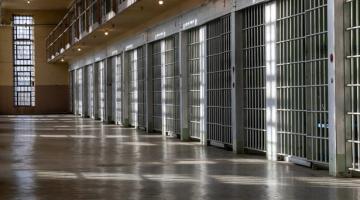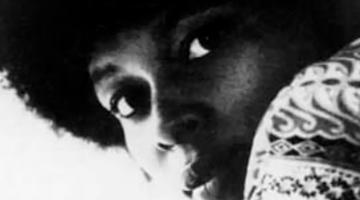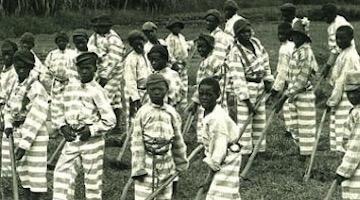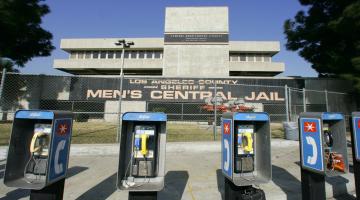Related Stories
Reuven Blau
After a damning revelation eight years ago, state leaders changed the make-up of the Parole Board to combat inequality.
Editors, The Black Agenda Review
Assata Shakur exposes the conditions faced by incarcerated Black women in a powerful 1978 essay.
Netfa Freeman
The US political elite and their elite press are using the fraudulent claims about a “crime wave” as an ideological offensive, a backlash, agai
Tamar Sarai Davis
The ‘slavery clause’ made the passage of restrictions targeting Black people like the Black Codes possible as well as convict leasing of
Lisa Armstrong
Prison officials could have prevented sickness and death by releasing those who were most vulnerable to coronavirus and least likely to reoffend —
Henry A. Giroux
The same activists who are working to defund the police are also part of a collective movement to bring an end to neoliberal capitalism.
Chris Gelardi
“Police can call you a gang member because they observed you with other gang members, who they declared gang members because they were with other g
Weihua Li, Beth Schwartzapfel, Michael R. Sisak and Camille Fassett
Judges, prosecutors and sheriffs in many states sent people home instead of to jail last year, but new data suggests the change is not lasting.
H. Claire Brown
The small world of prison food production is a microcosm of the American food system, which all too o#en functions as a race to the bottom.
Adam Mahoney
After first being forced to live in chemically toxic communities, Black and Brown people are then incarcerated in jails where they cannot escape so
More Stories
- Black Agenda Radio with Margaret KimberleyIn this week’s segment, we cover state repression and regime change efforts. While the corporate media parroted state narratives about a popular uprising in Iran, all evidence indicates that recent…
- Black Agenda Radio with Margaret KimberleyMnar Adley is the founder and director of MintPress News, an independent media outlet. She joins us from Minneapolis, Minnesota, where Donald Trump's ICE enforcement is used as domestic police…
- Black Agenda Radio with Margaret KimberleyNina Farnia is an assistant professor at Albany Law School in New York. She is a legal historian, focusing on the role of modern imperialism in U.S. law and politics, and a member of the Anti-…
- Tobi RajiU.S. funding for a study on the timing of hepatitis B vaccine doses in infants in Guinea-Bissau violates accepted standards of medical ethics.
- Margaret Kimberley, BAR Executive Editor and Senior ColumnistDonald Trump and other U.S. presidents are gangsters who will sometimes steal from their own crew. The Greenland heist is but the latest example, as the Denmark colonizers cry that they were robbed…



















